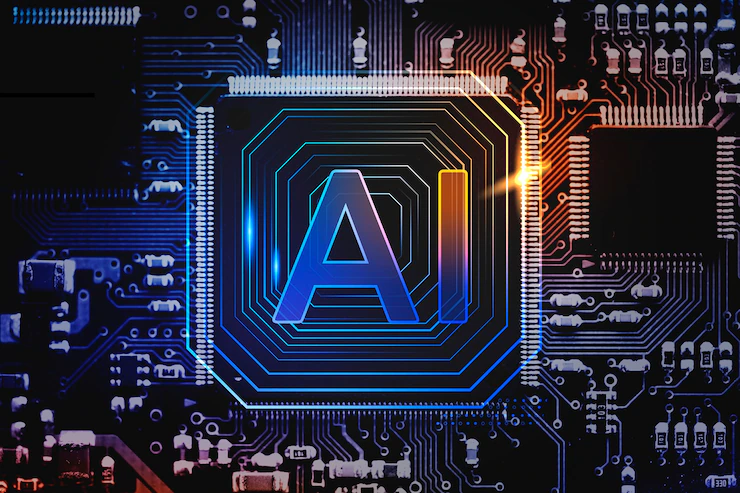- Home
- About
- Services
Data Engineering
and Analytics - Resources
- Partner with Us
Why Should Large Enterprises Consider AI?
Businesses are seeing actual benefits, including financial gains, as they implement artificial intelligence technologies into their operations. As per the 2020 Global AI Survey from McKinsey & Co., 22% of businesses utilizing AI claimed the technology contributed more than 5% of their 2019 earnings before interest and taxes.
Additionally, most of the business operations utilizing artificial intelligence technology solutions saw a rise in income yearly. In response to the COVID-19 epidemic, companies making the most money from AI told McKinsey that they intended to boost their AI investments. Businesses can obtain a competitive edge over market rivals thanks to AI’s entrance into the corporate world.
Market dynamics will alter following the deployment of exponential technologies, which will accelerate the rate of technological innovation. Companies that adopt the most adaptable and cutting-edge business models will have a considerably higher chance of becoming financially successful.
Customers’ behavioral data overflowing as they interact more with the online market will also give us important insights into their motives, personality traits, buying patterns, hobbies, and much more.
Consequently, businesses that use azure machine learning technologies will be able to use this data to inform their product and marketing campaigns, consumer experience, and market insights.
What is the need for implementing AI in business?
Large businesses must take AI into account because it is now possible to establish innovation, automate operations, enhance the customer experience, and create intelligent agents to assist with monotonous business tasks.
Artificial intelligence is the only way to gauge efficiency and return on investment. Those that do not begin using artificial intelligence and machine learning will fall behind. Healthcare, financial services, retail, telecommunications, oil and gas, and the automotive industries are all being transformed by AI.
Increased demand for hardware and services among expanding AI developer groups will result from the growth in AI development. Businesses should consider integrating the complete range of smart technologies, such as machine learning models, natural language processing, and others, into their procedures and goods to reap the most rewards.

According to the World Economic Forum, 97 million new employment will be created by 2025, but 85 million jobs will be lost. Therefore, the labor market will eventually change to emphasize technological specialties irrespective of your wish.
According to Fortune Business Insights, the global AI market was valued at $27.23 billion in 2019 & gets anticipated to grow at a 33.2 percent CAGR to reach $266.92 billion by 2027.
52 percent of telecoms businesses and 38% of healthcare providers now employ chatbots as part of their AWS ml services. It comes as no surprise. The need for 24/7 customer service is growing, and customers are willing to accept less sophisticated but quick responses to their queries—in other words, they’re willing to forgo quality.
It means that any industry, from legal to marketing, from health to food, will have artificial intelligence and machine learning applications.
What is the blockhole to AI incorporation in global enterprises?
Though AI is apparent, organizations must pass several hurdles before implementing such. But what are they?
Creating a vision for a targeted ai ml strategy is one of the first challenges. Setting a SMART objective comes once there is a vision. It’s crucial to develop a few trial projects and create objectives that are as precise, pertinent, attainable, and timely as possible.
By coming up with several concepts at once, you may use the team’s collective experience and choose a quick-reaction plan if the initial pilot doesn’t produce the desired outcomes.
One of the most difficult steps has always been developing the proper data strategy. Models learn from data, which is experience. Creating machine learning models that can produce relevant insights without the appropriate data is challenging.
Additionally, it’s critical to get a large firm’s executives and data scientists to support the objectives. Together, you can search for domains or use cases that could benefit from deep learning to overcome a difficult obstacle or seize an opportunity.
Most businesses use servers with conventional CPUs in their data centers, where the algorithm training must eventuate. Azure machine learning has only recently approached mainstream corporate practices, so this should be no surprise.
A business that wants to reinvent itself using machine learning will have to make the appropriate investments in hardware and software to take advantage of AI’s enormous potential.
What does AI mean for businesses?
There are many business applications for artificial intelligence technology solutions. Contrary to what is depicted in movies, AI has instead emerged as a supporting actor in the background of enterprises to help improve productivity, streamline workflows, and boost productivity. So what can it do?
By enhancing the customer experience, businesses can learn how to stand out to customers. They may offer data-driven, personalized recommendations, targeted personality-based marketing, and enhanced customer response times.
Robotic process automation, or RPA, uses AI to automate specific business activities (RPA). When organizations include AI technologies and AWS ml services into processes, they anticipate fewer errors and improved adherence to established standards.
Data analysis is one of the business applications of artificial intelligence and machine learning that is most frequently employed nowadays. Google can now carry out tasks with AI based on examining information using predictive analytics and data from numerous sources.
The production process is accelerated by many top corporations employing AI and robotics to produce more in less time. In turn, it increases output as well as revenue.
The future of AI in business:
The future is rapidly elevating & artificial intelligence technology solutions will undoubtedly play a role in it, whether rosy or rough.
As this technology advances, the world will witness brand-new businesses and a wide range of consumer applications, displacing some employment & creating completely new ones. Artificial intelligence, together with the IoT, has the potential to fundamentally alter the economy, while its effects are yet to be known!



